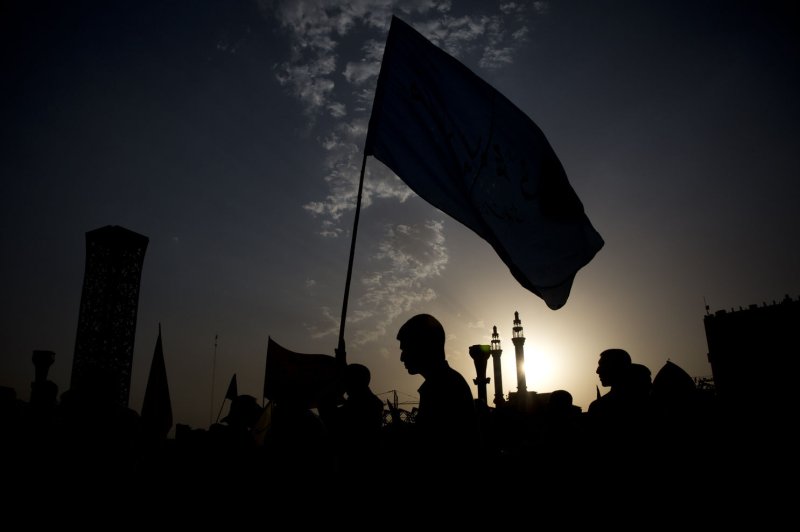Iran says it could capitalize on easing international sanctions to produce more oil, but remains under sanctions pressure. File photo by Maryam Rahmanian/UPI |
License Photo
May 8 (UPI) -- Iran could see its standing among OPEC members and on the global stage stabilize with global production agreements, a national oil company director said.
Iran on Monday started Day 2 of a four-day oil and gas conference in Tehran. The oil ministry's official news website Shana reported there were thousands of exhibitions "from across the globe" on hand to participate.
Gholam-Reza Manouchehri, a deputy director at the National Iranian Oil Co., said Iran has signed more than 20 memoranda of understanding with domestic and international oil companies since sanctions pressured eased in response to a multilateral nuclear deal implemented in January 2016.
Production through the arrangements could increase and "the boost is aimed at promoting and stabilizing the country's footing in the Organization of Petroleum Exporting Countries and the global market," Shana cited the director as saying.
Iran is the No. 3 producer among OPEC members, behind Saudi Arabia and Iraq. Production in May, the last full month for which OPEC published data, was around 3.8 million barrels of oil per day.
Members of OPEC are coordinating on an agreement to curb production in an effort to balance the market, but Iran is allowed room for growth as it looks to regain a market share lost to sanctions.
The oil and gas conference in Tehran comes as governors from the Central Bank of Iran meet with representatives from the International Monetary Fund to discuss remaining capital issues for Iran. Though trade opportunities are opening for the Islamic republic, some banking channels remain closed by sanctions.
Gholam Ali Kamyab, a vice governor for the Iranian bank, said bilateral financial exchanges were complicated.
"Conversion and transfer of funds as well as supply of the required liquidity to make payments in different countries are not rapid enough yet," he said in a statement.
Iranian Oil Minister Bijan Zangeneh said last month that foreign companies will invest in the nation's energy sector to the fullest extent of the law. Few outside companies are working closely with Iran, though the minister said he doesn't expect investments to wane.















